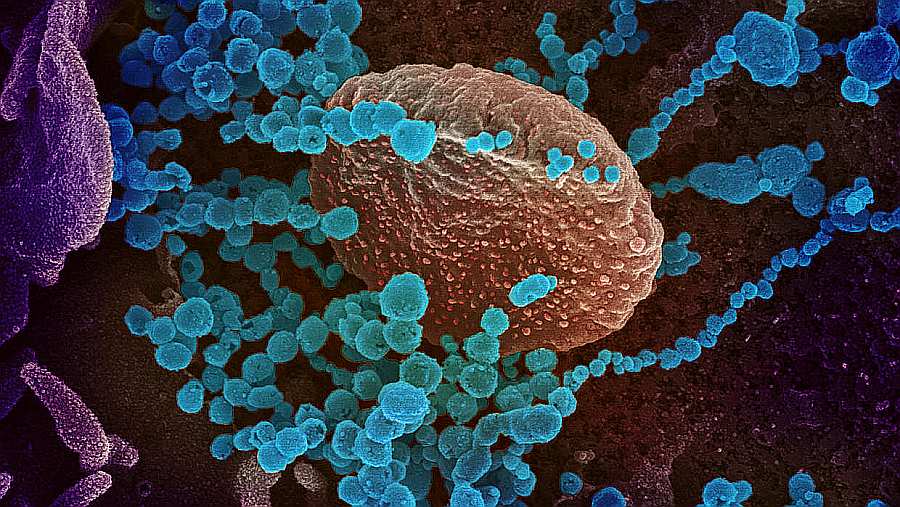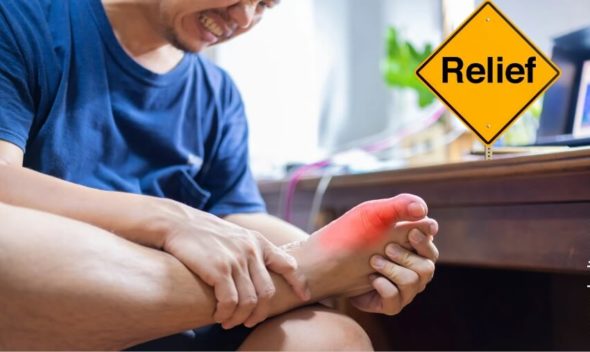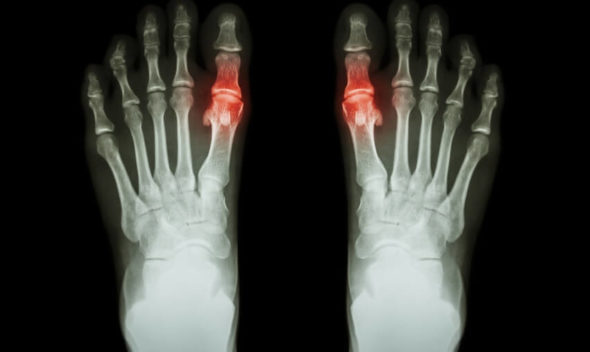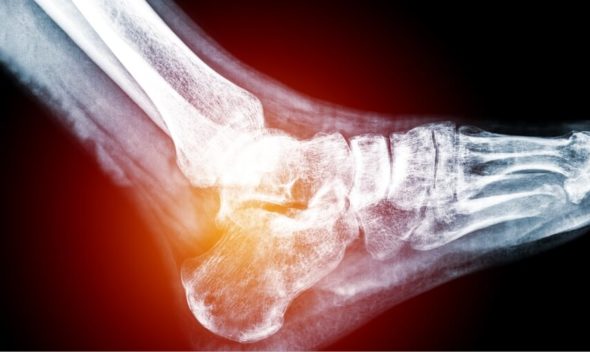Here we try to answer the question: What can we do to keep our immune system defenses strong and better protect ourselves against infections especially the Coronavirus?

In biology, our immune system or immunity refers to the body’s ability to defend itself against substances that threaten its proper functioning or survival. These “threats” can be of 3 kinds: microbes (viruses, bacteria, fungi, parasites), cells that have become cancerous or a foreign body (a splinter, as well as a transplanted organ). It has been known for a long time that with age or disease, immunity weakens and the body becomes more vulnerable to infections. These often become more frequent and more severe. Common flu can then develop into pneumonia and be fatal.
That said, it is also noticeable that some apparently healthy adults with a normal amount of immune cells (based on blood tests) often get infections such as colds or gastroenteritis. On the contrary, under similar conditions, others are more resistant to them. The difference would mainly be in lifestyle habits. Indeed, there is considerable evidence from epidemiological studies that diet, smoking, sleep, physical activity, stress levels, quality of relationships and living environment all influence the quality of the immune response.
Thus, health and immunity are closely linked: taking care of one’s health on a daily basis improves immunity and vice versa.
The Risk Factors section outlines lifestyle habits that weaken the immune system and the Prevention section outlines lifestyle habits that can strengthen it.
If at any time, the body needs an outside boost, there are a variety of additional solutions that can be used. The Medical Treatments and Natural Approaches sections present the most commonly used.
What is the immune system used for?
It is the immune system that provides the one-time fight against common infections, such as colds and flu, but also the long fight against cancer. Having a healthy immune system is not only good for your health, but it’s also good for your life! Without a healthy immune system, a minor scratch would be fatal, since a scratch exposes our tissues to a host of microbes naturally present in the air, water and on the skin.
Scientists are not familiar with the characteristics of the “optimal” immune response. However, they do know that the immune system is linked, through a complex communication system, to virtually every part of the body.
Weakened immune system Symptoms
A weakened immune system may be indicated by the following symptoms:
Persistent fatigue, which often masks chronic stress or lack of sleep, both of which weaken immunity.
An increased susceptibility to infections, which can be seen in frequent colds, urinary tract infections, herpes rashes, recurrent vaginitis, persistent wart, etc.
Injuries that take time to heal or cicatrize.
People at risk
The people affected by a weakened immune system are:
People weakened by any of the following factors are particularly affected:
– a chronic or serious disease: diabetes, lung disease, cardiovascular disorder, kidney disease, cancer, human immunodeficiency virus (HIV) infection, etc.
– a treatment: for example, chemotherapy for cancer.
Older people generally have an immune system that responds less quickly and less strongly to infections than middle-aged adults.
This explains why vaccination is less effective in middle-aged adults. Their smaller appetite and less varied diet partly explain this. Thinner skin, dry mucous membranes, and slower wound healing are also major contributors. This is because the body’s envelope is the most important safeguard against infection. Over time, the body also produces fewer white blood cells.
Immune system risk factors include the following:
- Malnutrition. A diet that is not balanced in quantity or quality is the most important cause of immune deficiency worldwide and makes you vulnerable to several infectious diseases.
- Sedentary lifestyles and, conversely, overtraining.
- Lack of sleep.
- Chronic stress. One of the multiple effects of chronic stress on the body is to reduce the immune system’s ability to respond.
- Exposure to toxins, such as through the use of chemical household cleaners and herbicides on lawns, and by eating fruits and vegetables sprayed with insecticides.
- Exposure to outdoor air pollutants as well as indoor air pollutants such as mould, bacteria, tobacco and combustion gases.
- Overweight and obesity. Immune function appears to be affected by excess fat, based on human and animal studies. Obesity has even been shown to increase the risk of contracting specific microbes, such as influenza and Helicobacter pylori (associated with peptic ulcers). Hormonal changes and the increased presence of pro-inflammatory substances could be involved.
Lifestyle habits for a strong immune system
Healthy Eating
Major malnutrition (marasmus) with calorie and protein deficiency is the main cause of immune deficiency. It is mainly found where poverty and famine are present.
In industrialized countries, micronutrient deficiency is becoming increasingly common. One reason for this is the popularity of junk food. Such malnutrition is caused by the lack of vitamins and minerals. Animal studies have shown that a deficiency of just one of the following micronutrients impairs immune function: zinc, selenium, iron, copper, calcium, folic acid or vitamins A, B6, C and E.
It is important to ensure that you get enough fruit and vegetables, protein and “good fats” every day.
To boost the immune system, some vegetables seem to be more effective than others. Mushrooms, such as shiitake mushrooms and oyster mushrooms, are thought to be more effective in boosting the immune system. Garlic, onions and shallots are also to be preferred for their antimicrobial properties.
If you have signs of immune weakness, it would be useful to obtain a blood test (prescribed by a doctor) and an evaluation of your eating habits by a nutritionist.
Moderate physical activity
The multiple benefits of regular physical activity are well known: improved cardiovascular fitness, maintenance of muscle mass, normalization of blood pressure, weight control and reduction of several risk factors associated with chronic disease.
In addition to promoting overall good health, exercise may also have a direct effect on immunity. By improving blood circulation, exercise would allow the various substances in the immune system to circulate more easily through the body. This good circulation is essential to prevent infection of a wound, for example. In addition, it has been observed that certain immune components are stimulated by physical activity.
In the elderly, a few studies indicate that regular exercise helps to prevent declining immune function.
However, it is best to exercise moderately, as overtraining may cause upper respiratory tract infections such as colds and flu.
Dealing with stress
Without a doubt, stress has a negative effect on your health if it is present in a constant or prolonged manner. Indeed, researchers looking at the link between stress and immunity are not looking at short-term, one-time stresses, but rather at frequent, ongoing stresses (e.g., balancing the demands of work and family life or caring for a sick family member). Stress causes liberation of stress hormones, especially cortisol and adrenaline. These hormones are very helpful in the short term, but harmful if produced over a long period of time. They directly harm the immune system by inhibiting the production of cytokines.
A few studies have shown that people caring for a loved one with Alzheimer’s disease have higher cortisol levels and produce fewer antibodies in response to the influenza vaccine. Researchers have found that the effect of this stress on immunity is inversely proportional to the support of the caregiver’s family and friends.
To reduce stress levels, it is suggested that we identify the situations that cause stress and look for ways to better cope with (rather than avoid) them. Consultation with a psychologist or psychotherapist can be very helpful.
Other Important Factors for Health and Immunity
- Get enough sleep, according to your needs (on average, a 7-hour night is a minimum). As well, you should rest when your body tells you to.
- Don’t smoke.
- Maintain your healthy weight, based on your height.
- Minimize the risk of food poisoning by taking appropriate precautions (preventive measures at home and while traveling).
- Protect yourself against sexually transmitted infections.
- Initiate the appropriate medical tests based on your age and specific risks.
- Ask a doctor about the vaccinations recommended for your age, occupation or hobbies.
- Use antibiotics only if absolutely necessary, and stick to the dosage. Consider the simultaneous use of probiotics to prevent antibiotic-induced diarrhea and to strengthen the intestinal flora. Similarly, for women, do not use douching for hygienic purposes. Doing so destroys the natural vaginal flora.
- Before adopting a pet, find out about the micro-organisms it can transmit.
- Use household products that contain as few chemicals as possible, clean very well your fruits and vegetables and opt for organic food (Highly Recommended).
Basic hygiene measures to avoid getting or transmitting an infection
- Use soap and water to wash your hands frequently, especially before preparing food and after using the toilet.
- When you sneeze, point your face inside your elbow.
- Clean and dress your wounds. Always have any serious injury checked by a doctor.
- Don’t remove skin as it heals, and don’t pop a pimple.
- If you have symptoms of infection (diarrhea, fever, etc.), stay home.
- Disinfect kitchen and bathroom surfaces regularly with bleach and water.
Medical treatments for strengthening a weak immune system
Medicine offers a variety of drugs to treat an infection or reduce the risk of infection. Here are a few examples.
Antiseptic lotions. These are applied immediately to minor wounds, cuts and scrapes. Prolonged use is not recommended, however, as it can cause the development of resistant strains of bacteria.
Antibiotics. Used to treat bacterial infections or prevent contamination in some cases.
Vaccination. This is a way to strengthen the immune system and improve the protection of individuals against certain infections. It builds a specific immune memory. The length of time vaccines are effective varies according to the type of vaccine.
Antivirals. These drugs that inactivate viruses can be part of the treatment of a viral infection such as shingles or chickenpox in adults. They can also be given to people who are more fragile to prevent a viral infection or reduce its consequences, such as the flu.
Medications for parasites, such as anti-malarial drugs. It is recommended that they be taken before traveling to an area of the world where the risk of contracting malaria is high.
Sometimes the doctor may also choose to administer antibodies, especially if there is an emergency need to boost the immune system. This is called serotherapy and provides short-term immunity.
If there is a high susceptibility to infection, the doctor will be able to determine if it is a primary (gene-related) immune deficiency. If this is the case, the symptoms are more pronounced and visible from childhood onwards, particularly in the case of recurrent, serious, long-term and difficult to treat infections. Special treatments then apply.
Complementary approaches to strengthen the immune system
Ginseng (Panax Ginseng)
Ginseng is used particularly in Traditional Chinese Medicine as a general tonic, helping to improve a host of physiological functions, including immune functions. Commission E and the World Health Organization recognize the tonic effects of ginseng on the body of people who are tired or weakened. In addition, studies suggest that the plant may be useful in providing better protection against the flu and colds.
Dosage: Take 100 mg to 200 mg of standardized ginseng extract (4% to 7% ginsenosides), twice a day.
Echinacea (Echinacea sp.)
Echinacea is especially useful for slightly reducing the duration of a cold and alleviating its symptoms. As far as prevention is concerned, studies do not provide a clear answer at this time. Some studies indicate that regular use of echinacea may actually reduce the frequency of colds. However, the magnitude of the protective effect varies from study to study.
Dosage: It is important to take Echinacea at the first signs of an upper respiratory tract infection (cold, sinusitis, laryngitis, etc.).
Warning: It is recommended not to take Echinacea for more than 8 consecutive weeks. Experts believe that if the immune system is stimulated for a prolonged period of time, it may either become depleted or become tolerant to such stimulation.
Probiotics
Probiotics, bacteria beneficial to the body, are part of the composition of intestinal and vaginal flora. It seems that some probiotics may help the immune system of children to develop and the elderly to function better. These bacteria are thought to act by stimulating the production of various antibodies in the human body. In a clinical trial, children treated with probiotics were better protected against respiratory tract infections than those treated with a placebo.
Turmeric.
Holy Basil.
Oregano.
Myrrh essential oil (combined with Frankincense oil).
Mind-body approaches
Mind-body approaches (which include relaxation techniques, meditation and psychotherapy, among others) focus on the interactions between the emotions and the physical body. Thus, by solving an emotional problem, one would benefit on the physical level, and vice versa. With respect to general immune system strengthening, trials indicate that some psychological interventions may have positive effects on immunity.
Qi Gong
Qi Gong is an “energy training” integrated into Traditional Chinese Medicine. Numerous in vitro and in vivo studies have examined the effect of Qi Gong on various immune parameters. Several have indicated that Qi emission by masters or regular Qi Gong practice can have a measurable effect on various immune cells. These encouraging results have still limited clinical significance.
The Laugh
Several small-scale studies on the physiological effects of laughter have been published. Typically, the experiments involve watching comedy films or documentaries. The levels of various components of the immune system are then measured in their blood or saliva. The Laugh seems to be involved in good immunity.
Colostrum
Colostrum is a yellowish substance that female mammals produce during the first 24 to 48 hours after the birth of their young. Very rich in proteins and antibodies, it helps strengthen the immune system of newborns. Dairy cow colostrum is sold as a natural product to support the immune system, ward off disease and delay aging. At this time, research does not support the effectiveness of this product.
Whey isolate
Whey isolate is commercially available as a powder that should be mixed with a little water or juice (not to be confused with whey protein). This product contains a high proportion of antibodies and several nutrients in concentrated form. Preliminary test results indicate that the whey isolate, at 24 g to 45 g per day, may have a positive effect on the impaired immunity of people with AIDS, hepatitis B (but not hepatitis C) and cystic fibrosis.
Bone broth.
Ginger.
Green Tea.
Beta-carotene foods.
Multivitamins and minerals
Vitamins and minerals are essential for growth and maintenance of vital balance. They therefore also help to keep the immune system in good condition. At present, opinions differ as to the usefulness of taking multivitamins to prevent diseases such as cancer and heart problems.
The following vitamins are your top list to boost your body’s immune defenses:
- Vitamin C
- Vitamin D
- Vitamin A
- Vitamin E
- Vitamin B6
Zinc
Even a slight deficiency of zinc has a significant effect on several aspects of immune function in humans. However, researchers do not know whether long-term zinc supplementation (6 months to 2 years) can boost immunity, as studies to date have shown conflicting results.
Iron
Very important to maintain an optimal body’s immune response.
Selenium
Strong micronutrient, antioxidant, initiate immunity and regulate its excessive responses.
Astragalus
Some preparations of the Chinese pharmacopeia containing astragalus root are intended to stimulate the immune system of people weakened by disease or simply aging or tired. According to Traditional Chinese Medicine, astragalus also stimulates cardiac functions. One example is the traditional preparation Bu Zhong Yi Qi Tang, whose main ingredient is astragalus root.
Dosage: To prevent respiratory tract disorders, it is recommended to take 4 g to 7 g of astragalus root per day in 2 or 3 doses. It can also be taken as a dry extract, tincture or decoction.
Eleutherococcus (Eleutherococcus senticosus)
Eleutherococcus is also called Siberian ginseng. This adaptogenic plant, which has a tonic action on the whole body, may have immunomodulating effects and broad-spectrum antiviral activity, as revealed by in vitro studies and preliminary studies in humans.
Dosage: Make an infusion with 2 g to 4 g of dried root in 150 ml of boiling water. Drink 1 or 2 cups per day.
The following herbs are the best for immune system regulation, and most times immune regulating works better than boosting: Velvet antler, Coriolus, Cordyceps, Tremella, Umbellatus, Maitake, Reishi and Shiitake, Chinese skullcap root, Licorice, Horse chestnut, Japanese Knotweed root, Artemisia, Ashwagandha, Honokiol (+ MCP), Star anise.
You may like to know:
Coronavirus: What you need to know!
Coronavirus update: 9 facts about Coronavirus
True-false effective ways to protect against coronavirus
Dr. Elix – Nature’s Finest Elixirs













Leave a comment